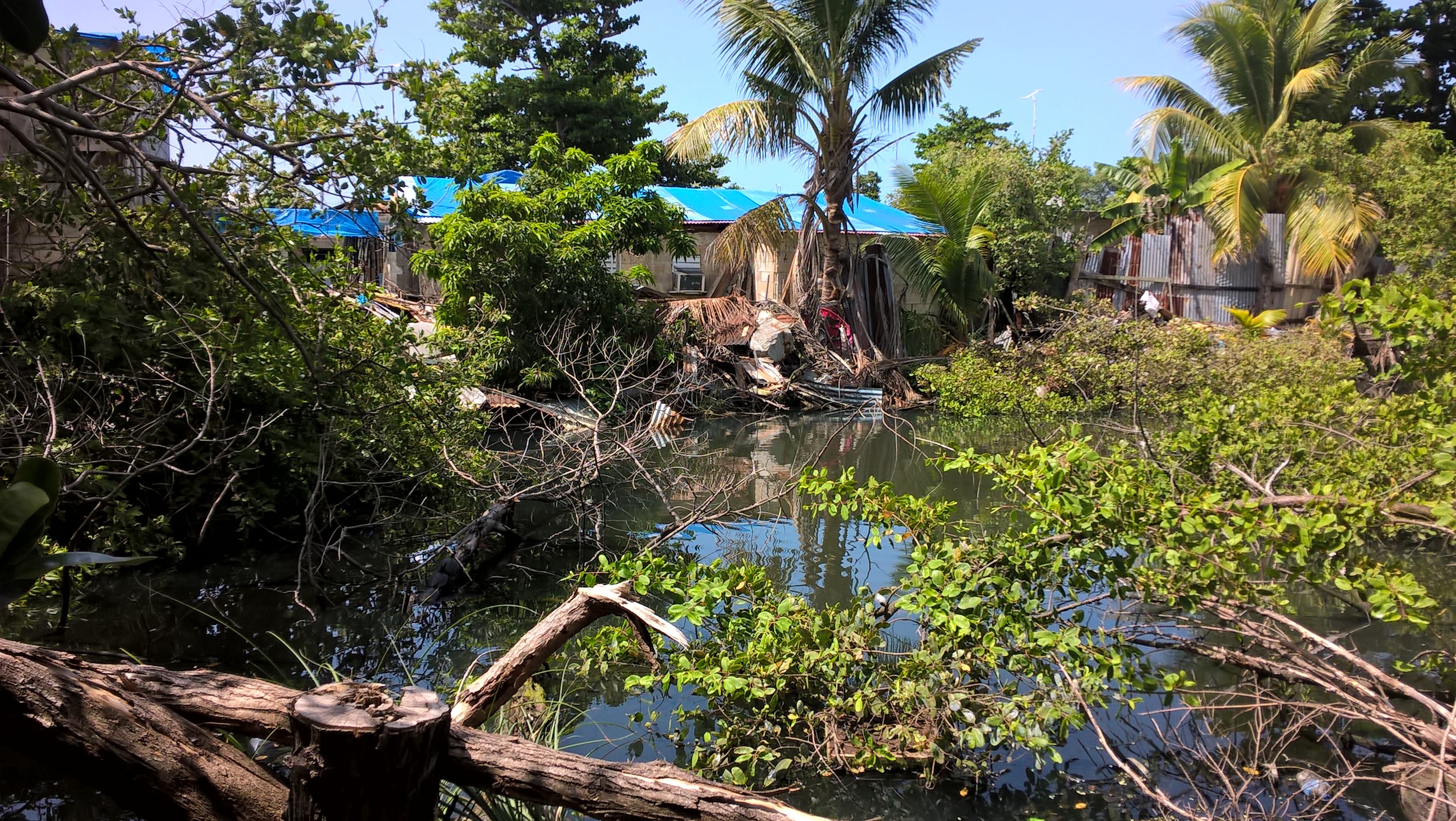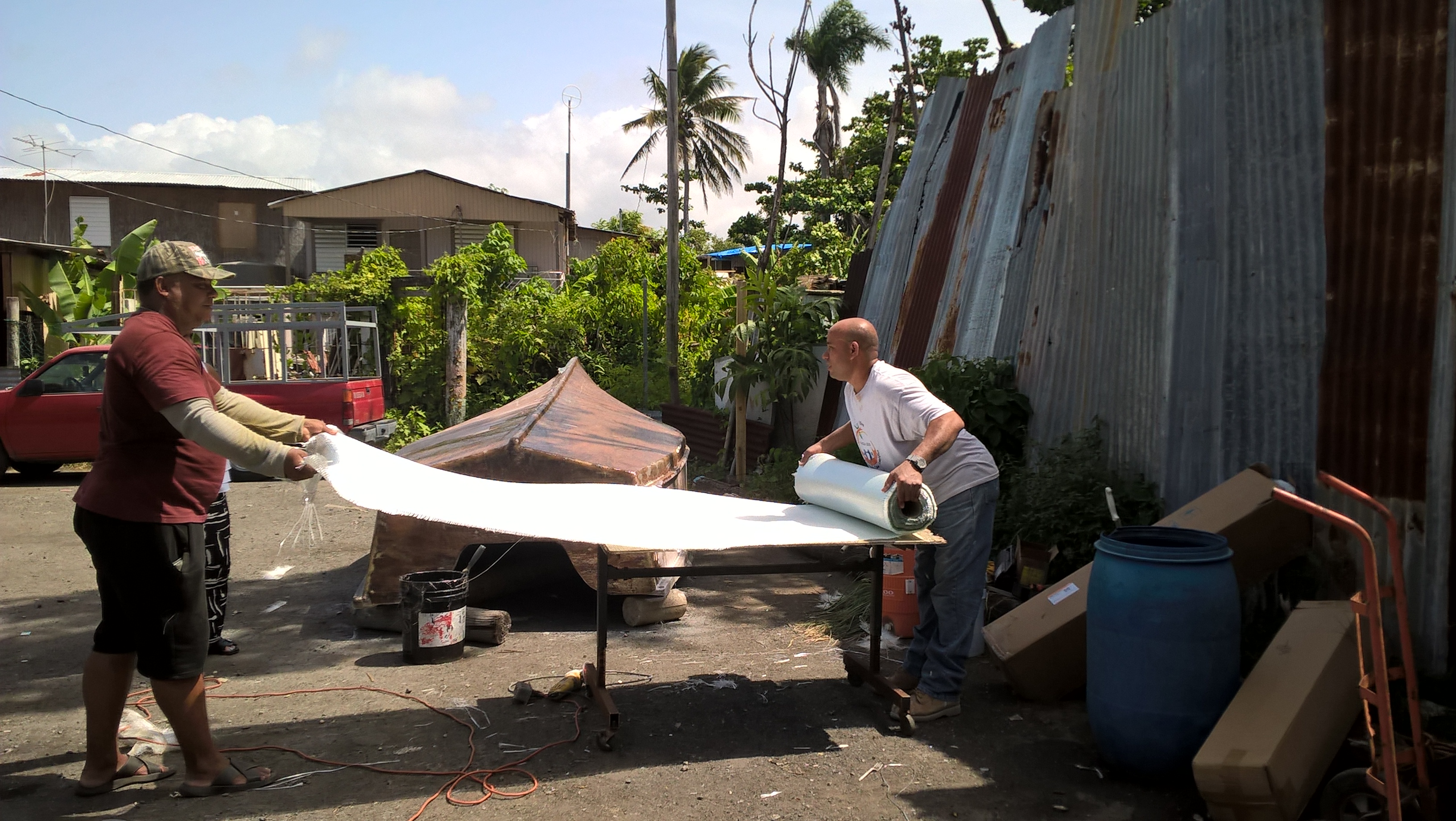
The diverse landscape of Puerto Rico — which encompasses coastal lowlands, mountain ranges, and a tropical rainforest — necessitates an equally if not more diverse range of tools and community action to support its residents and ecosystems living in harmony. Amid hurricanes, landslides, and other weather-related crises magnified by climate change, understanding Puerto Rico’s vulnerabilities and ability to adapt to evolving climate risks is essential to its long-term prosperity. The Institute for Sustainability Engagement (ISE) continues to support the Caribbean Island’s mission to achieve greater climate resiliency through the center’s recent research project funded by the National Oceanic and Atmospheric Administration’s Climate Program Office (NOAA CPO).
The ISE’s NOAA CPO Adaptation Sciences (AdSci) program FY23 competition project, “Beyond first response: investigating how Puerto Rico’s community-based organizations drive local climate action”, will support Caribbean climate adaptation by co-producing new research on Community-Based Organizations (CBOs), which are an important and understudied pillar of Puerto Rico’s climate-response system. By the end of this $300,000 two-year research project, ISE will advance the dialogue on the role CBOs play in climate adaptation efforts in island communities, contributing to the larger discussion about how policymakers can engage and integrate CBOs into a larger climate adaptation strategy.
CBOs have stepped up as Puerto Rico’s first line of defense against an increasing bombardment of environmental stressors due to a rising global climate. Through their hyper-local leadership, mediation, and implementation, these groups of largely informal, volunteer, not-for-profit civilian teams have established themselves as a vital and trusted resource in the face of climate emergencies, compared to the suboptimal role played by state and federal authorities. Most recently, CBOs were a critical part of a faster and more effective recovery response after Puerto Rico’s Hurricane Maria and Hurricane Ernesto.
“Receiving minimal support in the face of steadily worsening challenges, Puerto Rico is often referred to as an ‘underserved’ population, but this idea does not capture the whole picture,” explained Kaira Fuentes, ISE’s CoPI for the AdSci project. “As an island territory, Puerto Rico’s climate-related risks are exacerbated by a 120-year-long colonial legacy. Those who engage in CBOs are self-determined and proud to serve in their neighborhoods, and their peers trust them to step up where their governments have not. As these groups are critical to driving local action, understanding their function, impact, and opportunities to organize can only strengthen their ability to succeed.”

While Puerto Rican CBOs have become experts in emergency response, the ways in which they facilitate “climate adaptation” (creating a means to deal with future stressors) outside the disaster-response period is less clear. This project will provide new insights into the strategies, tools, barriers, and adaptive capacities of CBOs to drive local climate actions in Puerto Rico through the following interdisciplinary and participatory adaptation research methods:
- Exploratory case study development
- Establishment of a Community Advisory Committee
- Culminating regional presentations and a final report
In addition to identifying and describing how CBOs facilitate climate adaptation in Puerto Rico, this project aims to:
- Develop recommendations for policy-makers that define strategies and additional areas of study for drawing CBOs more centrally into climate adaptation efforts
- Develop a framework for integrating participatory research methods in climate adaptation inquiries
- Support knowledge exchange, amplify local stories and voices, and strengthen the Caribbean community of practice.
This research project is strengthened by the perspectives of its two Puerto Rican Co-Principal Investigators, Fuentes (ISE) and Professor Juan E. Marcano, University of Puerto Rico Humacao (UPRH), who have each contributed significant research on local perceptions of conservation in Puerto Rico and the role of community-based groups in disaster recovery. As institutions, ISE and UPRH provide a breadth of applied and community-based research experience that will strengthen the completion of this project.
The NOAA CPO AdSci program received 27 proposals in Fiscal Year 2023 (FY23), and of these 11 projects were selected for funding, totaling $3,140,372.00 in grants.
Institute for Sustainability Engagement (ISE) at Syracuse University
ISE is a nonprofit organization working at the intersection of sustainability communications, policy, and science to foster economic well-being, environmental stewardship, and social equity by engaging community members at all levels to provide the coordination and knowledge needed to make informed decisions that support sustainability, resiliency, and climate adaptation. The Syracuse University Environmental Finance Center (EFC), operated by ISE, is a pillar in this mission that facilitates the development of sustainable and resilient communities throughout US EPA Region 2 (New Jersey, New York, Puerto Rico, the US Virgin Islands, and eight Native Nations) and nationally.
